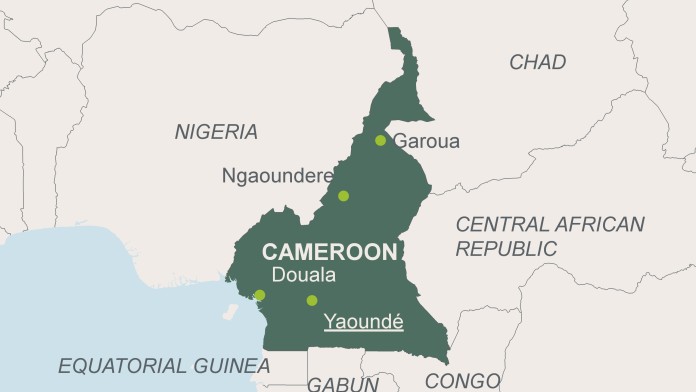

Cameroon is a country of contrasts. In the south of the country, farmers plough fertile soil, while the north is barren and dry. Revenue from the oil industry accounts for around a third of national revenue. The country is rich in other mineral resources, but there are difficulties in the reclamation of land for agricultural purposes. In addition to petroleum, the country also exports coffee, cocoa and wood products. Due to its ecological diversity, Cameroon has considerable potential in agriculture and livestock farming, which contribute around 20% to the country’s gross domestic product (GDP). Around 60% of the population works in agriculture.
Large areas of land are overused and degraded. Climate change is leading to losses of harvest and real income. More than half of the rural population lives on the equivalent of less than EUR 2 per day. Food security is not always ensured. The tropical forests of Cameroon, which are of global importance, are at risk of deforestation. Illegal logging is widespread. Politically, the country is characterised by stagnation. The stability of recent years is increasingly being lost, and tensions and conflicts are constantly arising in the west and north of the country in particular. Cameroon has also received a large number of refugees from the Central African Republic and Nigeria. There are also internally displaced persons, who add to the tension in the situation.
On behalf of the German Federal Government, KfW is supporting Cameroon in the following areas:
Cameroon still has a largely well-preserved tropical forest, but its ecosystem is under threat. Together with other international donors, KfW is supporting sustainable forest management and the management of protected areas – some of which are cross-border – in order to better protect endangered species. It is combining conservation with development measures in neighbouring areas so that people in the neighbouring areas profit from it.
As part of the “One World Without Hunger” initiative, KfW is participating in a fund to modernise the agricultural economy. This fund invests in small agricultural companies, with the aim of better integrating them into value chains. KfW is also financing the expansion of rural dirt roads, for example by building bridges, so that they can be used all year round.
KfW is also providing funds for infrastructure projects such as kindergartens, schools, hospitals, roads and markets to selected medium-sized cities through the Cameroonian fund FEICOM. Another project supports 15 smaller cities that have received numerous refugees from neighbouring countries. These now account for up to 30% of the population. KfW is also supporting the digitalisation of the Cameroonian tax administration.
KfW also provides funds to better combat neglected tropical diseases. Together with the World Bank, it finances better health services, especially for pregnant women and young children. It also supports family planning and HIV/AIDS prevention.
Germany is one of the largest donors in Cameroon and is working sustainably to improve the living conditions of the population.
KfW Office Yaoundé
Director KfW Office: Bruno Schoen
Rue 1820
Bastos
B.P. 7814
Yaoundé
Cameroon
+237 22 21 52 68
Fax: +237 22 20 23 51
